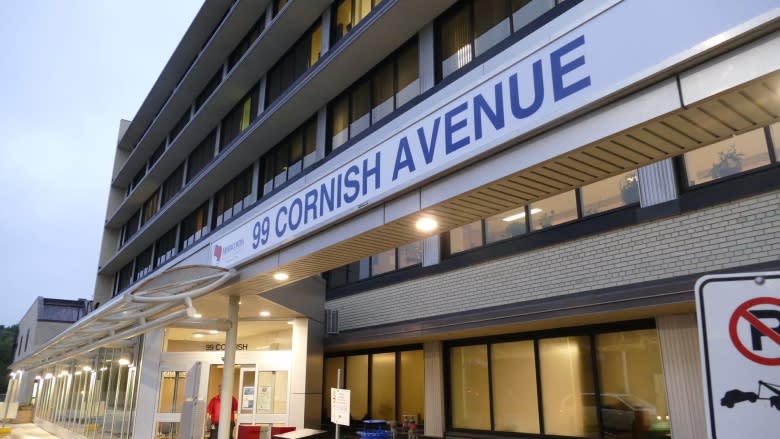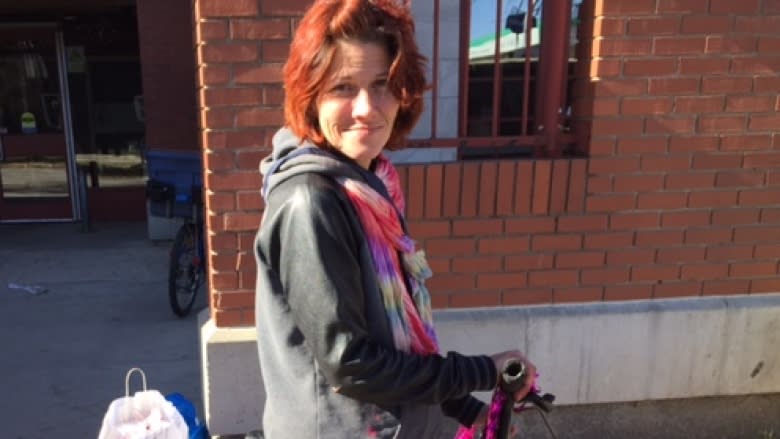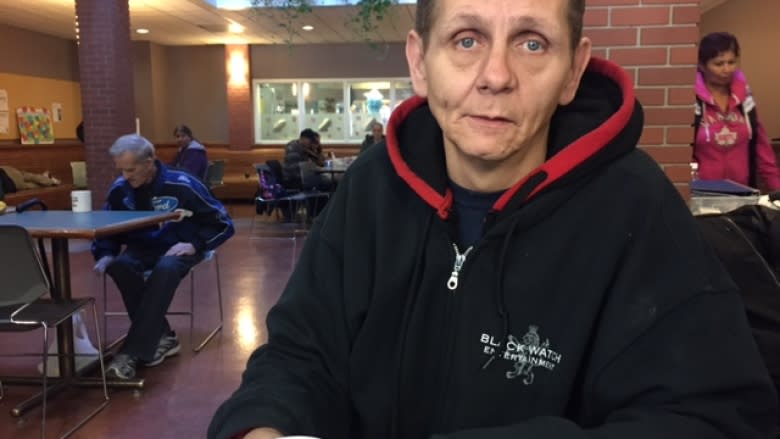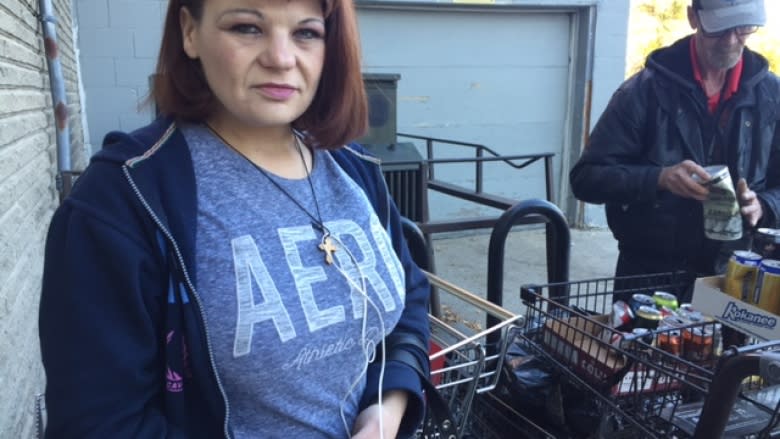Misericordia's closure left huge hole in care, area residents say
Dozens of people in Winnipeg's West Broadway area say they feel abandoned, unsafe and vulnerable after the closure of the Misericordia Health Centre's urgent care service earlier this month.
The service used to be available at all hours for people to see a doctor or nurse practitioner for broken bones, illnesses, injuries, and any other kind of non-life threatening crisis.
Melissa Ward, who lives in a series of makeshift tents in the area, found out the hard way that it was closed.
Over the weekend, she brought her friend to Misericordia in the "middle of the night" for a broken and bleeding wrist, and learned on arrival that it was closed for good.
"They wouldn't let us use the washroom, they wouldn't let us warm up," she said, adding she had no money for a cab to the Health Sciences Centre, the next closest hospital.
"I'm already freezing, we had to walk all the way there."
The Winnipeg Regional Health Authority says it helped find new doctors for 20 of the most vulnerable people in the neighbourhood before the urgent care service shut down. But a short walk through the area turned up at least two dozen people in the same situation as Ward.
The 35-year-old, who doesn't have a family doctor, said she doesn't know where she'll go now for medical care.
She had been to the urgent care centre several times for blood infections and felt comfortable speaking with staff about her drug use.
"Those nurses are really great. They went to bat for me a couple times. I'm going to miss them," she said.
"It's gone when we have so much people in need. It's kind of sad."
Kelly Ross, who lives with depression and PTSD, received care for his mental illness at Misericordia for the past 15 years.
"I've gotten to know some of the staff at Misericordia and they kind of know a little bit about you, so you don't feel discriminated against," he said.
Ross volunteers at West Broadway Community Ministries and lives within walking distance of the Misericordia. He accessed urgent care anywhere from three to 10 times a year, he said.
The nurses there could often take the time to "talk him down" from a panic attack instead of giving him medications.
"They were very knowledgeable because I'd been there before, they were very helpful and accommodating," he said, adding he worries about his panic episodes at an unfamiliar hospital, not to mention being able to afford the cost of getting there.
"It's very inconvenient because now I'm going to be reverted all the way down to Victoria hospital, which, I'm on a fixed income to begin with, it's very pricey."
Jackie Berkowski is in kidney failure and has struggled with addictions in the past. The Misericordia Urgent Care Centre was her sole source for medical care and support, and she said its closure has left her feeling "stranded."
"It's devastating actually because it's one of the places we can go that's close by," she said, while visiting with a friend behind the Sherbook Inn.
"There's a lot of people that get injured and just won't go now. I know: I broke my toe and I'm not going because Misericordia's closed," she said.
She said while she can still access the walk-in clinics in the area, she worries about night-time illnesses, injuries and her friends' overdoses.
"If you call 911 they get arrested right away, when what they needed was medical care," she said.
She has brought friends to urgent care several times for overdoses, she said.
"Once you're known, everybody knows you, kind of thing. You've got a more comfort level."
"Every area should be able to have medical care and this was ours. And now it's taken from us."
Chantal Ward, who was at a drop-in centre in the area, used to visit urgent care for her eating disorder.
She said staff would give her IV fluids once a month, sometimes solids as well.
She recently sought care at the Health Sciences Centre for nausea, but had to wait several hours, she said, and missed the familiarity of the Misericordia staff.
"It's harsh. It really is. We needed that urgent care in this area and it's really sad. And there's nothing that you can really say other than it's really sad because there's nothing we can do about it," she said.
"They based a lot of their morals on having good relationships with people in this community … and now it's gone."
A mentor for people living in poverty in the area explains that this population's vulnerability is the very reason accessing service outside of West Broadway is so challenging and unlikely.
"It's their safe area, it's their safe zone, it's extremely difficult for them to go outside of the boundaries of West Broadway, so a lot of people, it's hard for them to even get out of their house to come here, at a safe drop in," said Todd Donohue, a community advocate and mentor at the West Broadway Community Ministry, a non-profit community drop-in for people in the area.
He said between 150-200 people visit the centre a day, many of whom have been impacted by the closure of the urgent care centre.
"It's an institution in this neighbourhood that we can't afford to lose. There's so many people that rely on that service, and having to go to the Victoria, which is basically going to a foreign land for people sometimes, that makes it extremely difficult for them to have proper healthcare."
He credits the outreach teams of the WRHA and Canadian Mental Health Association for hitting the areas of the city where the vulnerable people are to help line them up with doctors and other resources.
But those efforts don't replace the urgent care centre.
"It's kind of discouraging because they see that the only people who are really affected are the people in poverty," said Donohue.
"These are the people that need proper health care the most."
More Manitoba news:










